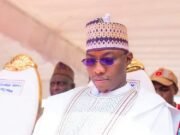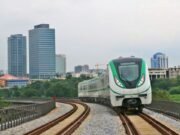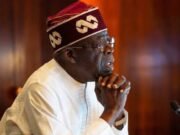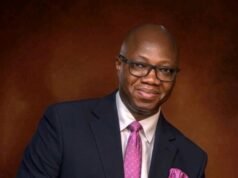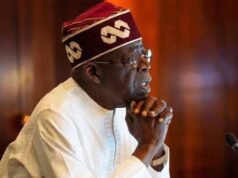“There is a powerful driving force inside every human being that, once unleashed, can make any vision, dream, or desire a reality”
–Tony Robbins
The post-colonial realities in Nigeria in relation to social interactions and relations among ethnic groups resonate the perennial clash between the late arrivals (colonialists) and early arrivals (Nigerians). In their quest for what they lack, the colonial lords searched the world to explore and exploit resources. In the case of Nigeria, they deployed direct and indirect rule and utilised the indigenous people to enslave their people. In this slave era, monarchs and the political elite were associates of colonial exploiters. They traded in slaves; exchanged their 20 able-bodied men for umbrellas and mirrors. Religion was also unleashed in the domination of indigenous people. For administrative convenience, Nigeria was birthed as a child of colonial circumstantial needs. Colonialists achieved the feat through initial friendly disposition that graduated to the use of force, superior technology, abduction and kidnap of men and women, rape and domination over natural and human resources.
Seventy-one years after the physical departure of colonial powers, Nigeria still embodies the trappings of colonialism. In what way does the sequence of events from the ‘fulanisation’ alert by the Owu chief prepare the way for the ‘rugalisation’ agenda? Does the dynamic deployment of concepts (ranching, colony, Ruga) show us a pattern of late arrivals (herdsmen) and their utilisation of superior political agency to actualise their goal of accumulation by dispossession? Modern-day realities and unfolding cleavages in Aso Rock policies and politics signpost a colonial contraption sliding into an unholy matrimony known as Nigeria. Is it possible to unpack how a government that cries of paucity of funds to revitalise university education and health manages to set aside funds for the revitalisation of cattle economy?
Despite the unpredictability of human behaviours, sociologists make predictions based on documented patterns and regularity. To analyse the current battle between the people of southern Nigeria and the aggressive herdsmen, I employed Late Arrival Superior Aggression theory (LASAT); a budding theory of Diaspora relations developed by the University of Ibadan School of Diaspora Studies. The proponent who heads the Diaspora and Transnational Studies unit, Dr Senayon Olaoluwa, observes, through history, the persistent clash between late arrivals and early arrivals and how the late arrivals have always thrived through the deployment of superior agency and aggression. For clarity, a few examples will suffice. While God created humans last (late arrival), he dominates animals, plants and cultivates the land (early arrivals). As humans, we kill animals and use plants for whatever we want. We capture lion, a ranking king of the jungle, and house it in a zoological garden making money from it to show our superiority. Our domination shows in names like ‘Super Eagles of Nigeria’, Indomitable Lions of Cameroon. The late Chinua Achebe was called ‘eagle on the Iroko’ to mention but a few.
Like the ‘aggressive’ herdsmen, we all leave home for work in search of that which we desire but lack. At the earth of the quest for power is what Senayon calls the ‘intermediate agency of desire and envy’. For the Fulani herdsmen, I see a desire ‘to be’ in the position of early arrivals (the southerners) and desire to ‘have’ or possess the privileged resources (land, space, power) in the hands of early arrivals (farmers and southern Nigeria). Crossing from the Northern region in search of green grass, the dispersal takes subtle strategies of kinsmen who take job as domestic staff, security and trade in neighbourhoods across southern Nigeria. The danger of a late arrival superior aggression can be seen in reported cases of domestic staff who kidnapped or killed their bosses in a desire ‘to be’ or ‘to have’ as theirs the privileges of their bosses. In the political arena, the take-over of power by the late arrival, the All Progressives Congress, from the early arrival, the Peoples Democratic Party, in 2015 unpacks the theoretical agency of LASAT in explaining varying human desires across sectors.
Through plotting and confrontation of legitimacy, the late arrivals’ (herdsmen) pursuit of the survival of their cattle leads to recurrent clash with early arrivals. Consequently, the ‘desire to survive’ is leading to the desire to dominate the indigenous owners of farmlands in the concerned geopolitical spaces. Their audacity of desire and envy is unleashed through the articulation of being Nigerian and historicising ranching as entrenched colonial practice to give it legitimacy. LASAT contends that where the late arrivals realise that the morality of ownership by the early arrivals is backed by law, such as the case of land tenure which gives states power over lands in their domains, they may resort to violence and criminality (killings, abduction, rape) to forcefully become sharers of the resources of the early arrivals and if possible, displace (farmers) and dominate them.
Surely, the latest joint call by the Nobel laureate, Wole Soyinka and the Ooni of Ife, Adeyeye Ogunwusi (Ojaja II), on the indigenous people of the South-West to defend their ancestral lands is a response to these events. Nonetheless, Senayon’s LASAT calls attention to the complacency of the host who only marks time. In other words, rather than responding to and dealing with the ‘desire and envy’ of the late arrivals, the early arrivals have a tendency to lay claim to a space as their ancestral home, counting time as the basic legitimating principle. To defend this right to land, the early arrivals in southern Nigeria use dane gun and machetes. Unlike the farming communities, the late arrivals (herdsmen), with their much audacious desire ‘to be,’ are striving to take with superior technology of aggression (AK47) and confrontation.
While LASAT does not imply aggression as only the use of force, it unpacks subtle strategies of the late arrivals aimed at the displacement of the early arrivals from their position of domination and control over resources. In Nigeria at the moment, a key subtle strategy has been the exploitation of political agency. We see a situation in which the late arrivals (herdsmen) are courting and appropriating the political agency of the Prince of Daura as the grand patron of Miyetti Allah. The body language of the retired General seems favourable to the interests of the Miyetti group.
The ‘ruga’ agenda resonates the colonial strategy of domination but it is possible for the early arrivals to re-strategise to consolidate their domination over desired resources. The early arrivals in southern Nigeria must become anxious and not complacent. They cannot rely entirely on their political leadership who nurse future political ambitions to secure their space nor their compromised kings. Rather, they should learn from how the PDP insiders worked with the APC to displace the PDP in 2015. Soyinka and the Ooni must be joined by other significant voices to frustrate suspicious schemes. They must sniff around to unlock evolving strategies of the late arrivals and ensure that their grand patron does not use the commonwealth to entrench the interests of clannish comrades.
Dr Tade, a sociologist, sent the piece from Ibadan.



